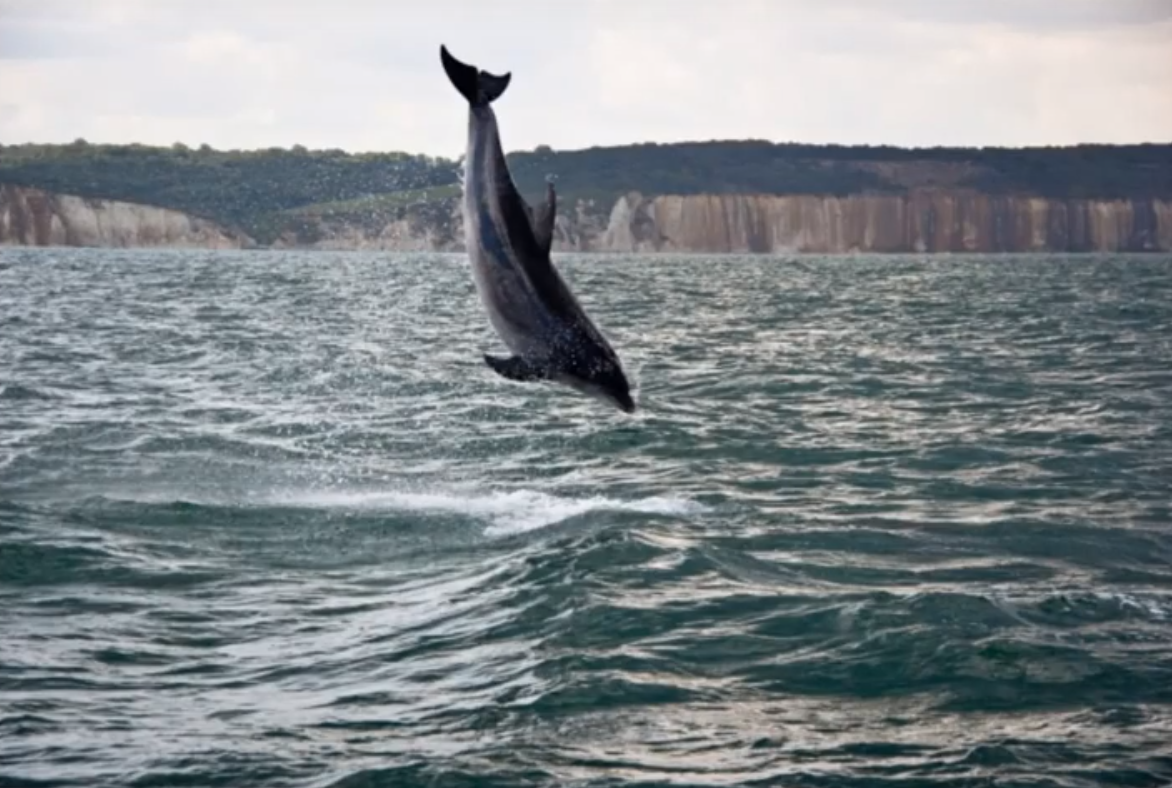Horny dolphins, 10ft sharks and giant jellyfish – the animals responsible for beach closures this summer
Even the friendliest sea creatures can cause havoc

Swimming has been banned at the beach at Landévennec in Brittany, France, after a dolphin in heat started displaying sexual behaviour towards people in the water.
The animal, nicknamed Zafar, is well known in the local area, having spent the summer in various beaches around the Bay of Brest.
Previously he was a welcome sight for tourists, approaching boats and sometimes letting swimmers hold onto his dorsal fin.
However, in recent weeks his behaviour has changed, becoming more sexually aggressive. There have been instances of Zafar trying to prevent swimmers from getting back to shore, and he even lifted one woman out of the water with his nose.
He has also been seen approaching boats and kayaks and rubbing up against them in a state of arousal.
As a result, Landévennec mayor Roger Lars has introduced a new bylaw to “ensure people’s safety”:
“Swimming and diving are banned on the village shoreline… whenever the presence of the dolphin is confirmed.
“Approaching within 50 metres of the dolphin is also forbidden.”
The mayor told the Ouest-France newspaper: “Several swimmers were frightened. He even lifted up a woman swimmer last Thursday with his nose.”
It’s not the first time an animal has scuppered holidaymakers’ chances of taking a dip this summer…
10ft shark in Mallorca
Police closed Mallorca’s Cala Domingos beach on 2 August after a 10ft tintorera shark was seen swimming in the shallows.
The animal was caught on camera making its way towards the beach, causing swimmers to clear the water in alarm. Children could be heard screaming as the shark approached.
It turned out the creature had been stung by a ray, hence its close proximity to the shore, and was in pain and distress. Authorities eventually made the decision to euthanise the animal after it was found barely breathing on the sand.
Portuguese men o’ war in Benidorm
A number of beaches were closed in the seaside resort of Benidorm, Spain, in May after a swarm of Portuguese man o’ war jellyfish were spotted off the coast.
An 11-year-old boy was taken to hospital after being stung at La Marina beach near Elche on the Costa Blanca, and miles of coastline were subsequently closed between Denia and Torrevieja, a nearly 150km stretch that takes in Benidorm and the popular city of Alicante.
The creatures carry venomous tentacles which can grow up to 50m, with a sting powerful enough to kill fish and humans.
Seal in Melbourne
Brighton Beach in Melbourne was closed on 28 August after a seal was spotted sleeping on the sand.
“The snoozing sea beast doesn’t appear to be in any distress but beware, it’s an offence for people to go within 30m of a seal on land or to let a dog under your control go within 50m,” Victoria Police said.
The large male leopard seal had woken up by lunchtime and headed back into the sea.
Whale calf on Bondi Beach
Sydney’s Bondi Beach was shut off on 28 August due to a decapitated whale calf washing ashore. The carcass was removed from the northern end of the beach, which remained closed due to the increased risk of shark activity near the shore.
Sharks can often smell a dead animal that’s been washed up, which attracts them closer to the shore and makes it dangerous for swimmers.
Subscribe to Independent Premium to bookmark this article
Want to bookmark your favourite articles and stories to read or reference later? Start your Independent Premium subscription today.

Join our commenting forum
Join thought-provoking conversations, follow other Independent readers and see their replies